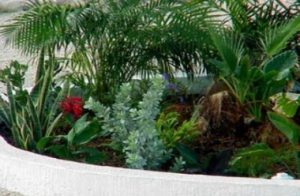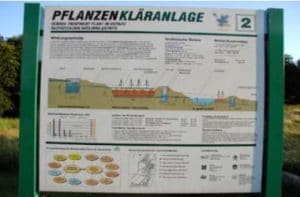Donate to Wastewater Gardens International
We are pleased to serve as a corporate fiscal sponsor to Wastewater Gardens International.
Wastewater Gardens International (WWG-I) was created to promote good water governance and best practice as well as ecologically-based solutions for wastewater effluent and water management. Initiated by Dr. Mark Nelson, Chairman of the Institute of Ecotechnics, and further developed with Florence Cattin, http://www.wastewatergardens.com and later with Dr. Davide Tocchetto and other collaborators, our network aims to design, build and train people worldwide in the ecotechnology of subsurface flow constructed wetlands for wastewater treatment.
All donations received are tax deductible. Please email support@ecotechnics.edu for details how to make an earmarked donation for this educational outreach publishing program.
For more information on Wastewater Gardens International, go to Wastewatergardens.com.
 Wastewater Gardens International (WWG-I) was created to promote good water governance and best practice as well as ecologically-based solutions for wastewater effluent and water management. Initiated by Dr. Mark Nelson, Chairman of the Institute of Ecotechnics, and further developed with Florence Cattin, http://www.wastewatergardens.com and later with Dr. Davide Tocchetto and other collaborators, our network aims to design, build and train people worldwide in the ecotechnology of subsurface flow constructed wetlands for wastewater treatment.
Wastewater Gardens International (WWG-I) was created to promote good water governance and best practice as well as ecologically-based solutions for wastewater effluent and water management. Initiated by Dr. Mark Nelson, Chairman of the Institute of Ecotechnics, and further developed with Florence Cattin, http://www.wastewatergardens.com and later with Dr. Davide Tocchetto and other collaborators, our network aims to design, build and train people worldwide in the ecotechnology of subsurface flow constructed wetlands for wastewater treatment.
Florence serves as a Project Officer with the Institute of Ecotechnics for international applications and projects in addition to her role with WWG-I handling international liaison, design and implementation. The ecotechnic approach to safe and effective treatment and re-use of wastewater draws on decades of research and practical experience in fourteen countries around the world. WWG-I’s involvement varies depending on the nature of the project, from help in system design and engineering to on-site construction and training. More information on the systems, regional affiliates and officers is available at http://www.wastewatergardens.com.
Wastewater Gardens systems are an environmentally-friendly approach to treating and recycling residential sewage, animal slurry and other types of contaminated water, protecting the groundwater and greening the landscape. The ideal applications for constructed wetlands are for houses, businesses, communities and all operations using water which either do not have connections to centralized wastewater treatment systems and must do on-site treatment and reuse – or where not sufficient treatment is provided by existing treatment systems.
 In many coastal and inland communities, human waste is not treated at all or only through septic tanks, which then seep into groundwater and eventually affect human health and the health of rivers, lakes and the ocean. Fecal coliform, a bacteria found in sewage, and other pathogens pollute the groundwater, and the excessive nitrogen and phosphorus cause damage to natural ecosystems creating atrophy. Whether from industries, homes, businesses, restaurants and hotels, untreated wastewater is a major health and environmental problem which constructed wetlands, along with other environmental engineering technics, can successfully address, with the advantage of creating a whole range of additional environmental and economic benefits to those of solely treatment.
In many coastal and inland communities, human waste is not treated at all or only through septic tanks, which then seep into groundwater and eventually affect human health and the health of rivers, lakes and the ocean. Fecal coliform, a bacteria found in sewage, and other pathogens pollute the groundwater, and the excessive nitrogen and phosphorus cause damage to natural ecosystems creating atrophy. Whether from industries, homes, businesses, restaurants and hotels, untreated wastewater is a major health and environmental problem which constructed wetlands, along with other environmental engineering technics, can successfully address, with the advantage of creating a whole range of additional environmental and economic benefits to those of solely treatment.

